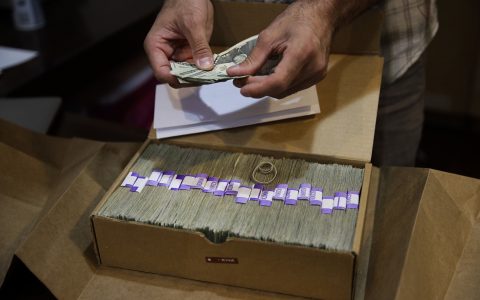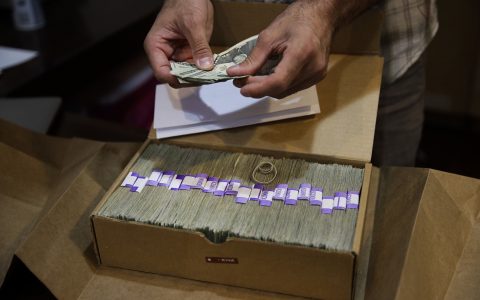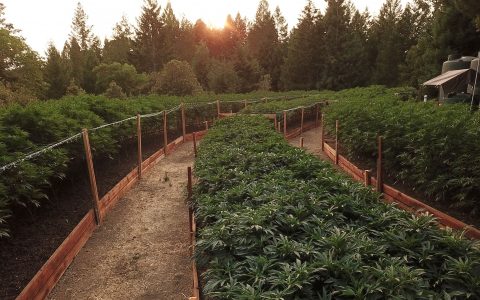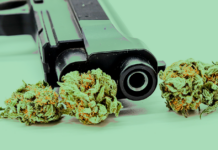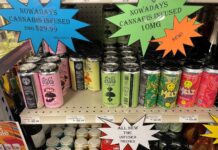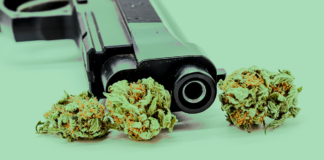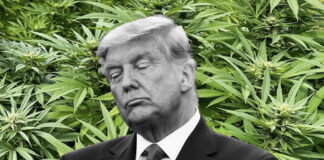Voters across California have just six days left to weigh in on the cost of cannabis in their communities.
David Goldman, president, San Francisco chapter, Brownie Mary Democratic Club
Roughly 26 cities and counties have sent recreational marijuana tax measures to their voters this midterm election. The taxes would range from around 5% in places like Solvang, CA to as high as 15% in Atwater, CA— rates unheard of in any other industry.
In some cases, the taxes will amount to a ban on retail cannabis sales without the need for local officials to actually vote to ban them, said Ellen Komp, deputy director of California NORML.
“A lot of them are just trying to tax it away,” Komp said, either with high rates or with burdensome zoning restrictions. But most of the ballot measures, she adds, are proposing reasonable rates in the low single digits.
Cannabis Prohibition’s Death Means Taxes
Because California’s state-level taxes are already so high, any additional cost imposed on the industry is going to hurt, at least a little.
California’s Proposition 64 enacted a layer cake of taxes including: state, and local, sales, and excise taxes, plus cultivation taxes, and huge new regulatory costs. Eighth-ounces of cannabis flowers crested $100 in San Francisco this October—versus $50 ounces in Oregon.
Among the most controversial measures is in San Francisco, where voters will decide whether to impose up to 5% taxes on every dollar that comes in a cannabis business’ front door—called a “gross receipts tax.” That tax would come on top of the city’s 8.75 percent sales tax, as well as the state’s cannabis tax, which for retailers is 15%. Medical cannabis operators would be exempt.
San Francisco proposes to tax cannabis business at a rate more than ten times as high as tech companies like Google, Facebook and Twitter.
“We’re not against cannabis taxes, but they should be comparable to taxes imposed on similar businesses,” says David Goldman, president of the Brownie Mary Democratic Club. By “similar businesses,” he just means “businesses.”
The main complaint about San Francisco’s proposed tax, and many others, is that it could spur illegal sales on the illicit market, which is thriving due to legal cannabis’ high prices and limited availability.
Looking For Legal Cannabis? Leafly Has All Your Local Menus
A ballot measure across the Bay in Oakland is taking the opposite approach. Cannabis companies there have complained loudly about the city’s high tax rates—10% for adult-use, 5% for medical cannabis. And the tax is levied at every step of the supply chain, from cultivation to manufacturing to testing to distribution to retail sales. As in other jurisdictions with high tax rates, this has led to a market where only the biggest players are able to thrive, and in some cases, barely survive. By voting on amendments to Measure V, voters will decide whether to cap rates at their current levels and give the city council the authority to lower the taxes.
Oakland has put itself at a competitive disadvantage relative to cities like neighboring Berkeley, which taxes cannabis at half of Oakland’s rate, and nearby Richmond, which levies a 4% tax.
Taxes Bring Legitimacy
In many cases, taxes could actually be, on balance, good for the industry, said Sean Donohoe, an independent cannabis consultant. “The more of those that pass, the more support the cities will see from local voters for legal cannabis,” he says. “It’s not support for taxation per se, but for a legitimate, regulated industry.”
While 75% of California cities have banned cannabis businesses, others got in early with regulations and a low tax regime. Santa Rosa is becoming something of a cannabis mecca, with thriving businesses and a tax rate of just 3% on adult-use sales, and no tax at all for medical sales.
On the opposite end of the spectrum is Redding, CA. where voters will decide whether to impose a tax of up to 10% on sales, and another tax—$25 per square foot of floor space per year—on manufacturers, distributors and other such operations. Komp singled that measure out as especially burdensome.
The midterm elections will be held on Tuesday, Nov. 6. Registered voters are already mailing in their ballots. You can look up your polling station at GetToThePolls.com.


